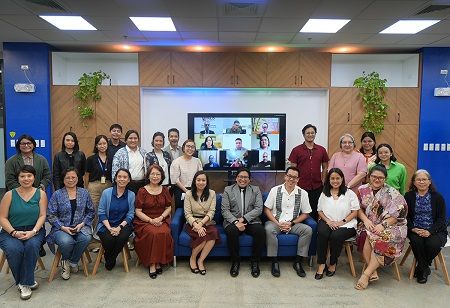- Education leaders from across Asia convened to explore how flexible, stackable certifications can drive lifelong learning and employability.
- The Universiti Kebangsaan Malaysia professor highlighted how micro-credentials bridge traditional degrees with industry-aligned, skills-based pathways.
- Participants emphasized governance, credit alignment, inclusivity, and outcome measurement to ensure micro-credentials strengthen not fragment higher education systems.
The Lily Gokongwei Ngochua Leadership Academy at Ateneo de Manila University hosted a recent roundtable discussion on the emergent role of micro-credentials within higher education, bringing together leaders across the Asian continent to discuss ways in which flexible credentials can enable lifelong learning, employability, and innovation at the institutional level.
Featured at the event was Dr Helmi Norman, Associate Professor of Digital and Futuristic Education at Universiti Kebangsaan Malaysia, as keynote speaker. He discussed how micro-credentials are disrupting pathways into higher education and the job market by connecting traditional degree programmes with stackable skills-based certifications that are often co-designed with industry partners, aligned with emerging needs.
Participants discussed key opportunities and challenges concerning micro-credentials i.e.; how to provide quality assurance, align to academic credit frameworks, provide clear signalling to employers and learners, and integrate ethical and inclusive design. They underlined that in rapidly evolving fields, such as AI, data science, sustainability, and community engagement, micro-credentials can afford institutions the agility to respond more quickly than their conventional programmes.
At the same time, panellists stressed that without strong governance, alignment with an institutional mission and clear, transparent pathways for progression, there is a very real risk that micro-credentials fragment or undermine broader educational goals. The conversation looked at how Asian universities and higher-education networks are forging partnerships with industry, governments, and overlapping credentials systems to offer flexible, lifelong educational pathways that combine short-form certifications, modular learning, and stackable credit-bearing units.
Also Read: UAE MoF, IMA Team Up to Launch CMA, FMAA Certifications
The roundtable emphasized that, if micro-credentials are to realize their potential, institutions should be adopting forward-looking practices embedding them within coherent learner journeys, recognizing them toward degrees or professional licenses, ensuring they are accessible to diverse learners, measuring outcomes, and maintaining rigorous standards.
The Lily Academy framed such credentials within its Whole-Person Educational Leadership framework, which focuses on depth of knowledge, horizon of global/ecological awareness, and frontier thinking around digital-centric strategy. The discussion noted that micro-credentials can support each of these pillars by enabling targeted leadership development, digital upskilling, and responsive curriculum design for educational leaders and practitioners.
In convening this multistakeholder roundtable, The Lily Academy renewed its commitment to supporting educational innovation across the Philippines and broader Asian region, recognising that higher education will have to adapt to a fast-changing world of work, technology, and society. The roundtable thus concluded that micro-credentials will serve increasingly as important building blocks in lifelong learning ecosystems, provided they are purposefully designed, recognized, equitable, and connected to institutional strategy, learner needs, and societal goals.

